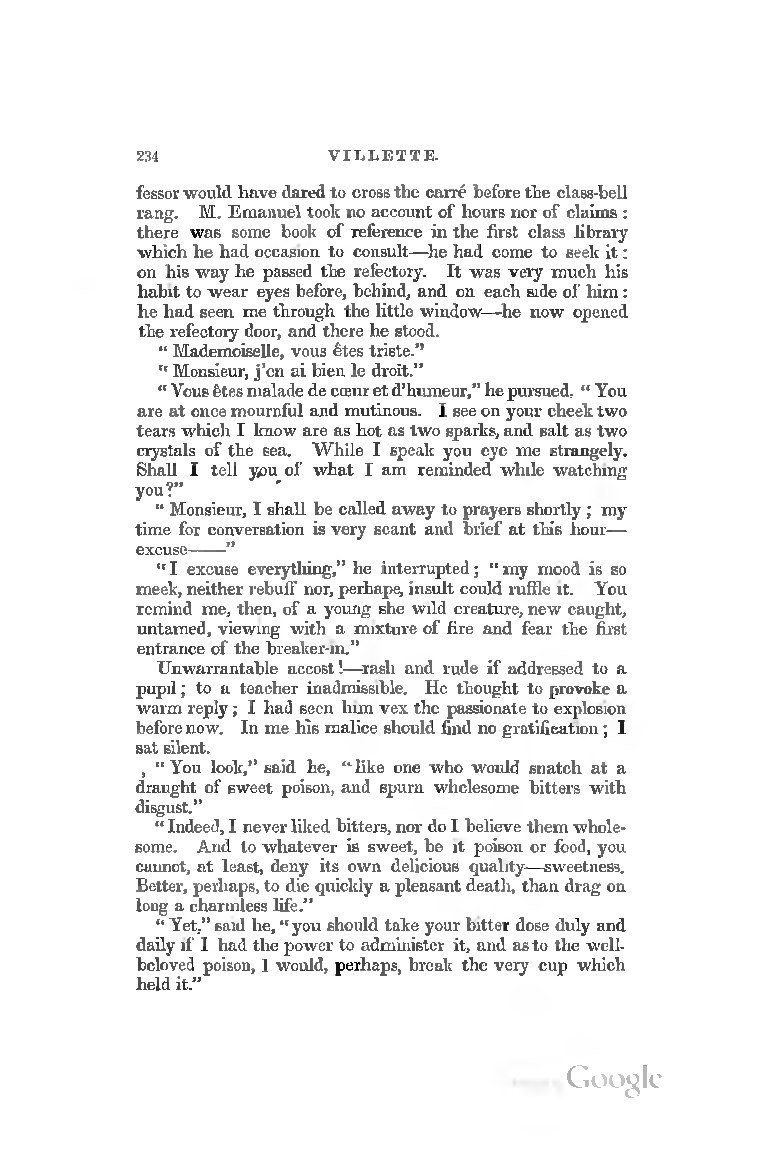fessor would have dared to cross the carré before the class-bell rang. M. Emanuel took no account of hours nor of claims: there was some book of reference in the first-class library which he had occasion to consult—he had come to seek it: on his way he passed the refectory. It was very much his habit to wear eyes before, behind, and on each side of him: he had seen me through the little window—he now opened the refectory door, and there he stood.
"Mademoiselle, vous êtes triste".
"Monsieur, j'en ai bien le droit".
"Vous êtes malade de cœur et d'humeur". he pursued. "You are at once mournful and mutinous. I see on your cheek two tears which I know are hot as two sparks, and salt as two crystals of the sea. While I speak you eye me strangely. Shall I tell you of what I am reminded while watching you?"
"Monsieur, I shall be called away to prayers shortly; my time for conversation is very scant and brief at this hour—excuse"
"I excuse everything", he interrupted; "my mood is so meek, neither rebuff nor, perhaps, insult could ruffle it. You remind me, then, of a young she wild creature, new caught, untamed, viewing with a mixture of fire and fear the first entrance of the breaker-in".
Unwarrantable accost!—rash and rude if addressed to a pupil; to a teacher inadmissible. He thought to provoke a warm reply; I had seen him vex the passionate to explosion before now. In me his malice should find no gratification; I sat silent.
"You look", said he, "like one who would snatch at a drought of sweet poison, and spurn wholesome bitters with disgust".
"Indeed, I never liked bitters, nor do I believe them wholesome. And to whatever is sweet, be it poison or food, you cannot, at least, deny its own delicious quality—sweetness. Better, perhaps, to die quickly a pleasant death, than drag on long a charmless life".
"Yet", said he, "you should take your bitter dose duly and daily if I had the power to administer it, and, as to the well-beloved poison, I would, perhaps, break the very cup which held it".
